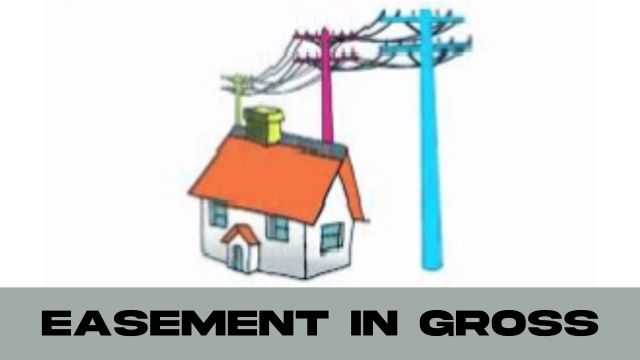
Finding the best planner for real estate agents is essential for managing a busy schedule. Custom agent planners offer tailored features to help agents stay organized, track leads, and achieve their goals effectively.

Best Planner for Real Estate Agents
Choosing the best planner for real estate agents depends on individual preferences and work styles, but there are several popular options that cater specifically to the needs of real estate professionals. Here are some of the top planners for real estate agents:
1. The Tom Ferry Planner
- Features: Weekly and daily planning pages, goal setting, time blocking, habit tracking, and business planning sections.
- Benefits: Tailored specifically for real estate agents with a focus on productivity and goal achievement.
2. The CE Shop Real Estate Planner
- Features: Task lists, appointment schedules, lead tracking, goal setting, and reflection sections.
- Benefits: Designed to help agents manage their time effectively and keep track of their business metrics.
3. The Buffini & Company Referral Maker® Planner
- Features: Daily and weekly planning, goal setting, lead tracking, client follow-up reminders, and motivational quotes.
- Benefits: Focuses on building and maintaining client relationships through systematic follow-ups and referrals.
4. The Agent Success Planner by Tom Ferry
- Features: Goal tracking, habit forming sections, time blocking, lead tracking, and weekly reflections.
- Benefits: Helps agents stay organized and focused on their business goals, with tools to track progress and success.
5. The KW (Keller Williams) Real Estate Planner
- Features: Time blocking, goal setting, lead tracking, client follow-ups, and productivity tips.
- Benefits: Integrates with the Keller Williams real estate system and tools, making it a good fit for KW agents.
6. The Paperless Agent’s Digital Planner
- Features: Digital format, accessible on tablets and computers, integrates with CRM systems, and customizable templates.
- Benefits: Ideal for tech-savvy agents who prefer a digital solution that syncs with other tools they use.
7. Panda Planner for Real Estate
- Features: Monthly, weekly, and daily planning pages, goal setting, lead tracking, habit tracking, and gratitude sections.
- Benefits: Emphasizes work-life balance with sections for personal development and productivity.
8. Happy Planner® Real Estate Edition
- Features: Customizable, with sticker packs and add-ons for goal setting, lead tracking, and daily planning.
- Benefits: Highly customizable and visually appealing, suitable for agents who enjoy personalizing their planner.
Key Considerations When Choosing a Planner:
- Format: Decide between a physical planner and a digital planner based on your preference for writing versus typing.
- Customization: Look for planners that allow you to tailor sections to fit your specific needs and business style.
- Features: Ensure the planner includes sections for goal setting, lead tracking, time blocking, and client follow-up.
- Integration: For digital planners, consider how well they integrate with your existing tools and CRM systems.
- Portability: Choose a planner size that is convenient to carry with you to appointments and meetings.
Ultimately, the best planner for a real estate agent is one that aligns with their workflow, helps them stay organized, and supports their business goals.
Realtor planner
A realtor planner is a specialized tool designed to help real estate agents manage their time, track leads, set goals, and stay organized. Here are some key features and benefits of an effective realtor planner:
Key Features of a Realtor Planner
- Daily and Weekly Planning Pages:
- Allow agents to schedule appointments, open houses, and client meetings.
- Include sections for daily to-do lists and priority tasks.
- Goal Setting and Tracking:
- Help agents set and track business and personal goals.
- Include sections for long-term and short-term goals, along with progress tracking.
- Lead Tracking and Follow-Up:
- Provide space to record new leads, follow-up dates, and contact information.
- Include sections for tracking the status of each lead.
- Client Management:
- Sections for client information, including contact details, property preferences, and transaction notes.
- Follow-up reminders and client communication logs.
- Marketing and Advertising Planning:
- Pages for planning and tracking marketing campaigns and advertising expenses.
- Include sections for social media posts, email campaigns, and other promotional activities.
- Financial Tracking:
- Income and expense tracking pages to manage commissions, fees, and other business-related expenses.
- Budgeting tools and profit/loss tracking.
- Productivity Tools:
- Time-blocking sections to allocate specific times for various tasks.
- Habit trackers to help agents develop productive routines.
- Motivational and Reflective Sections:
- Inspirational quotes and motivational prompts to keep agents focused and positive.
- Reflection pages to review achievements, challenges, and areas for improvement.
Popular Realtor Planners
- The Tom Ferry Planner:
- Tailored for real estate agents with a focus on productivity and goal achievement.
- Includes weekly and daily planning pages, goal setting, time blocking, and habit tracking.
- The CE Shop Real Estate Planner:
- Helps agents manage their time effectively and track business metrics.
- Features task lists, appointment schedules, lead tracking, goal setting, and reflection sections.
- The Buffini & Company Referral Maker® Planner:
- Focuses on building and maintaining client relationships through systematic follow-ups and referrals.
- Includes daily and weekly planning, goal setting, lead tracking, client follow-up reminders, and motivational quotes.
- The Agent Success Planner by Tom Ferry:
- Helps agents stay organized and focused on their business goals.
- Includes tools to track progress and success, with goal tracking, habit forming sections, time blocking, lead tracking, and weekly reflections.
- Panda Planner for Real Estate:
- Emphasizes work-life balance with sections for personal development and productivity.
- Includes monthly, weekly, and daily planning pages, goal setting, lead tracking, habit tracking, and gratitude sections.
Benefits of Using a Realtor Planner
- Enhanced Organization: Helps agents keep track of appointments, tasks, and deadlines, reducing the risk of missing important events.
- Improved Productivity: Time-blocking and to-do lists help agents prioritize tasks and make the most of their workday.
- Better Client Management: Provides a centralized place to store client information and track interactions, leading to improved client relationships.
- Goal Achievement: Helps agents set, track, and achieve their business and personal goals.
- Financial Oversight: Assists in tracking income, expenses, and overall financial performance.
A well-designed realtor planner is an invaluable tool for real estate agents, helping them stay organized, productive, and focused on their goals. By choosing a planner that suits their needs and preferences, agents can enhance their efficiency, improve client relationships, and achieve greater success in their real estate careers.
Why Real Estate Agents Need a Dedicated Planner
Best Planner for Real Estate Agents operate in a dynamic and fast-paced industry where organization and time management are crucial. A dedicated planner tailored to the specific needs of real estate professionals can significantly enhance their productivity, efficiency, and overall success. Here are several reasons why real estate agents need a dedicated planner:
1. Time Management and Scheduling
- Appointment Tracking: Real estate agents often have multiple appointments daily, including property showings, client meetings, and inspections. A dedicated planner helps keep track of these appointments, ensuring no time conflicts or missed meetings.
- Time Blocking: Planners allow agents to allocate specific blocks of time for various tasks, such as prospecting, marketing, administrative work, and personal time, helping them maintain a balanced schedule.
2. Goal Setting and Progress Tracking
- Business Goals: Agents can set and track specific business goals, such as the number of listings, sales targets, or client acquisition goals. Regularly reviewing these goals helps maintain focus and motivation.
- Personal Goals: In addition to business goals, a planner can help agents set and achieve personal goals, contributing to overall life satisfaction and work-life balance.
3. Lead Management and Follow-Up
- Lead Tracking: A dedicated planner provides sections for recording new leads, including contact information and follow-up dates. This ensures that no potential client slips through the cracks.
- Follow-Up Reminders: Timely follow-up is crucial in real estate. Planners can remind agents when to reach out to leads, nurturing relationships and increasing the chances of closing deals.
4. Client and Transaction Management
- Client Information: Keep detailed records of client preferences, contact details, and transaction progress. This personalized approach enhances client relationships and service quality.
- Transaction Tracking: Monitor the status of ongoing transactions, ensuring that all necessary steps are completed in a timely manner, from listing to closing.
5. Marketing and Advertising Planning
- Campaign Management: Plan and track marketing campaigns, including social media posts, email newsletters, and open houses. This organized approach maximizes marketing efforts and ROI.
- Expense Tracking: Manage advertising budgets by keeping a record of marketing expenses and evaluating the effectiveness of different campaigns.
6. Financial Oversight
- Income and Expenses: Track commissions, fees, and other income sources alongside business expenses. This helps in budgeting and financial planning.
- Tax Preparation: Keeping detailed financial records throughout the year simplifies tax preparation and ensures that all deductible expenses are accounted for.
7. Productivity and Motivation
- Habit Tracking: Develop and maintain productive habits by tracking daily routines and activities. Consistent habits lead to sustained productivity and success.
- Motivational Tools: Many planners include motivational quotes, goal review sections, and reflection prompts to keep agents inspired and focused.
8. Enhanced Professionalism
- Organized Workflow: A dedicated planner helps agents maintain a structured and professional approach to their work, enhancing their reputation and reliability.
- Client Confidence: Being organized and on top of tasks builds client confidence and trust, essential for long-term success in real estate.
Maximizing Efficiency with Route Planning
Maximizing efficiency with route planning is crucial for real estate agents who need to manage multiple property showings, client meetings, and errands within limited time frames. Effective route planning not only saves time but also reduces travel costs and enhances client satisfaction. Here are some strategies and tools to help real estate agents maximize efficiency with route planning:
Strategies for Effective Route Planning
- Group Appointments by Location:
- Schedule property showings and client meetings in the same geographic area on the same day. This reduces travel time between appointments.
- Use zoning techniques to create clusters of appointments based on location.
- Prioritize Appointments:
- Prioritize appointments based on client importance, property availability, and potential for closing deals.
- Ensure high-priority appointments are given optimal time slots.
- Optimize Time Slots:
- Allow sufficient time between appointments for travel, potential delays, and client interactions.
- Avoid scheduling appointments too close together to prevent running late.
- Use Technology:
- Utilize route planning apps and GPS navigation tools to find the most efficient routes.
- Integrate route planning software with your calendar to automatically optimize your schedule.
- Plan for Traffic and Peak Hours:
- Consider traffic patterns and avoid scheduling appointments during peak traffic hours when possible.
- Use real-time traffic updates to adjust routes dynamically.
- Centralize Meeting Points:
- For initial consultations or multiple showings, choose a central meeting point to start from, reducing overall travel time.
- Communicate with Clients:
- Keep clients informed about your schedule and expected arrival times. Provide updates if there are delays or changes.
- Confirm appointments the day before to minimize cancellations and no-shows.
Tools for Route Planning
- Google Maps:
- Provides real-time traffic updates and route optimization.
- Allows you to save and share routes with clients and colleagues.
- Waze:
- Offers real-time traffic information and alternative route suggestions.
- Community-driven alerts for traffic, accidents, and road closures.
- Route4Me:
- Specialized route optimization software for multiple stops.
- Integrates with calendars and CRM systems for seamless scheduling.
- MapQuest:
- Offers route planning with multiple stops and traffic updates.
- Provides estimated travel times and route optimization.
- Road Warrior:
- Designed for salespeople and delivery drivers, making it suitable for real estate agents.
- Offers advanced route planning features, including optimization for multiple stops.
- Badger Maps:
- Tailored for field sales and real estate professionals.
- Combines route optimization with CRM integration and lead management.
Benefits of Efficient Route Planning
- Time Savings: Reduces the amount of time spent traveling between appointments, allowing for more productive use of the day.
- Cost Savings: Minimizes fuel and vehicle maintenance costs by reducing unnecessary travel.
- Improved Client Experience: Punctuality and efficient scheduling enhance client satisfaction and build trust.
- Increased Productivity: More efficient use of time allows agents to handle more appointments and tasks within a day.
- Reduced Stress: Effective planning reduces the stress associated with managing a busy schedule and navigating traffic.
Maximizing efficiency with route planning is essential for real estate agents aiming to optimize their schedules, reduce travel time, and improve client satisfaction. By grouping appointments by location, prioritizing tasks, using technology, and considering traffic patterns, agents can significantly enhance their productivity. Leveraging route planning tools like Google Maps, Waze, Route4Me, and others can further streamline the process, making it easier to manage a busy real estate schedule effectively.
Digital Planners: The Future of Real Estate Planning
Digital planners represent the future of real estate planning, offering unmatched convenience and efficiency for agents. Unlike traditional paper planners, digital planners are easily accessible on smartphones, tablets, and computers, enabling real-time updates and seamless integration with other digital tools like CRM systems, email, and calendars.
Features such as automated reminders, task management, and lead tracking enhance organization and productivity. Additionally, digital planners allow for customization to fit individual workflows and preferences, and cloud storage ensures data is securely backed up and accessible from anywhere. This adaptability and connectivity make digital planners an indispensable tool for modern real estate agents, streamlining their workflow and helping them manage their time and clients more effectively.
Read more: Understanding Entitlements in Real Estate & Entitlement process
7 Features to Look for in the Best Planners
When selecting the best planner, especially for real estate agents, it’s crucial to ensure it includes features that enhance productivity, organization, and goal tracking. Here are seven essential features to look for:
1. Customizable Layouts
- Description: Allows you to tailor the planner to fit your specific needs and preferences.
- Benefit: Ensures the planner works for your unique workflow and helps keep relevant information easily accessible.
2. Goal Setting and Tracking
- Description: Sections dedicated to setting, tracking, and reviewing both short-term and long-term goals.
- Benefit: Keeps you focused on your objectives and allows you to monitor progress and adjust strategies as needed.
3. Time Management Tools
- Description: Includes time-blocking, daily schedules, and appointment trackers.
- Benefit: Helps manage your time effectively, ensuring that important tasks and meetings are prioritized and completed on time.
4. Lead and Client Management
- Description: Space for recording and tracking leads, client information, and follow-up reminders.
- Benefit: Keeps all client interactions and lead statuses organized, enhancing your ability to maintain relationships and close deals.
5. Financial Tracking
- Description: Sections for income, expenses, budgeting, and financial goal setting.
- Benefit: Assists in managing finances, tracking commissions, and planning for taxes, ensuring financial health and preparedness.
6. Marketing and Advertising Planning
- Description: Pages for planning and tracking marketing campaigns, social media posts, and advertising expenses.
- Benefit: Helps organize and evaluate marketing efforts, ensuring consistent and effective promotion of your listings and services.
7. Reflection and Motivation
- Description: Spaces for daily reflections, motivational quotes, and gratitude journaling.
- Benefit: Promotes a positive mindset, helps reflect on successes and challenges, and maintains motivation and inspiration.
Choosing a planner with these seven features ensures you have a comprehensive tool that supports all aspects of your real estate business. Whether digital or physical, the right planner can significantly enhance your productivity, organization, and overall success.
The Role of Traditional Paper Planners
Traditional paper planners continue to play a significant role in the organization and productivity of many professionals, including real estate agents. Despite the rise of digital alternatives, paper planners offer unique benefits that keep them relevant and valuable. Here’s an overview of their role:
1. Tangible Engagement
- Benefit: Writing things down by hand can enhance memory retention and understanding. The physical act of writing can help solidify plans and goals in your mind.
2. Simplicity and Accessibility
- Benefit: Paper planners do not require batteries, internet access, or compatibility with other devices. They are always ready to use and can be accessed quickly without the need for login credentials or device setups.
3. Reduced Digital Fatigue
- Benefit: Using a paper planner can provide a break from screens, helping reduce digital eye strain and mental fatigue associated with constant device usage.
4. Creative Freedom
- Benefit: Paper planners allow for greater creativity and personalization. Users can doodle, use stickers, color-code entries, and decorate pages to make planning more enjoyable and visually appealing.
5. Focused Planning
- Benefit: A paper planner minimizes digital distractions. When using a paper planner, there are no notifications or alerts to divert attention, allowing for more focused and uninterrupted planning sessions.
6. Permanent Record
- Benefit: Paper planners serve as a lasting physical record of schedules, tasks, and accomplishments. They can be kept and referred to for historical reference, providing a tangible timeline of past activities and achievements.
7. Versatility and Customization
- Benefit: Many paper planners offer customizable layouts and inserts, allowing users to tailor their planners to their specific needs. Whether it’s adding extra note pages, dividers, or specialized sections, paper planners offer flexibility in organization.
8. Enhanced Privacy
- Benefit: Information in a paper planner is not subject to digital hacking or data breaches, providing a higher level of privacy and security for sensitive information.
Traditional paper planners remain a valuable tool for real estate agents and other professionals due to their simplicity, tangible engagement, creative freedom, and reduced digital fatigue. They offer a break from screens, a permanent record of activities, and a customizable planning experience that digital tools often can’t match. By integrating both paper and digital planning methods, professionals can leverage the strengths of each to maximize their productivity and organization.
4 of the Best Planners for Real Estate Agents
Choosing the right planner is essential for real estate agents to stay organized, manage time effectively, and achieve their goals. Here are four of the best planners specifically designed for real estate professionals:
1. The Tom Ferry Planner
Features:
- Goal-setting and tracking tools tailored for real estate agents.
- Daily, weekly, and monthly planning pages to organize tasks and appointments.
- Time-blocking sections to prioritize important activities.
- Motivational quotes and prompts to stay inspired.
- Reflective sections for reviewing progress and setting new goals.
Benefits:
- Comprehensive tools for managing both professional and personal goals.
- Focuses on productivity and maintaining a balanced schedule.
- Helps agents stay motivated and track their achievements.
2. The CE Shop Real Estate Planner
Features:
- Detailed sections for daily, weekly, and monthly planning.
- Lead tracking and follow-up reminders to nurture client relationships.
- Goal-setting pages for both short-term and long-term objectives.
- Marketing and advertising planning tools.
- Financial tracking sections for income, expenses, and budgeting.
Benefits:
- Helps agents stay organized with comprehensive planning tools.
- Enhances lead management and client follow-up efficiency.
- Provides financial oversight and marketing organization.
3. The Buffini & Company Referral Maker® Planner
Features:
- Focuses on building and maintaining client relationships.
- Daily, weekly, and monthly planning sections with task lists.
- Goal-setting and tracking tools for business growth.
- Space for recording client interactions and follow-ups.
- Motivational content to keep agents inspired.
Benefits:
- Emphasizes client relationship management and referrals.
- Helps agents set and achieve meaningful business goals.
- Provides a structured approach to daily and weekly planning.
4. The Agent Success Planner by Tom Ferry
Features:
- Time-blocking sections to optimize daily schedules.
- Goal-setting tools with regular progress check-ins.
- Lead tracking and follow-up reminders.
- Sections for marketing planning and campaign tracking.
- Weekly reflections to review successes and challenges.
Benefits:
- Encourages effective time management and goal achievement.
- Keeps track of leads and ensures timely follow-ups.
- Provides a balanced approach to marketing and client management.
These four planners offer real estate agents a variety of tools to enhance their productivity, organization, and goal-setting capabilities. Whether focusing on client relationships, lead management, marketing, or financial tracking, these planners provide the necessary features to help agents succeed in their careers. Choosing the right planner can make a significant difference in staying organized and achieving business objectives.
6 Ways to Integrate Your Planner with Your Real Estate Career
Integrating your planner with your real estate career can significantly enhance your productivity and efficiency. Here are six ways to effectively incorporate your planner into your daily real estate activities:
1. Schedule Property Showings and Client Meetings
- Plan Ahead: Use your planner to schedule property showings, client meetings, and open houses in advance.
- Time Blocking: Allocate specific time blocks for these appointments, ensuring you have enough travel time between locations.
2. Track Leads and Follow-Ups
- Lead Management: Record new leads in your planner with their contact details and initial meeting notes.
- Follow-Up Reminders: Set reminders for follow-up calls or emails to ensure you maintain consistent communication with potential clients.
3. Set and Track Goals
- Business Goals: Use goal-setting sections to define your sales targets, number of new clients, or other business objectives.
- Progress Tracking: Regularly update and review your progress towards these goals, adjusting strategies as needed.
4. Organize Marketing Activities
- Campaign Planning: Plan and schedule your marketing campaigns, social media posts, and email newsletters.
- Track Results: Use your planner to record the performance of your marketing efforts, noting what works and what doesn’t.
5. Manage Financials
- Income and Expenses: Keep track of your commissions, fees, and other income sources along with your business expenses.
- Budgeting: Set monthly or quarterly budgets and monitor your spending to ensure you stay within your financial goals.
6. Reflect and Adjust
- Daily Reflections: At the end of each day, take a few minutes to reflect on what went well and what could be improved.
- Weekly Reviews: Use the weekly review sections to assess your accomplishments, challenges, and adjust your plans for the upcoming week.
Conclusion
Integrating your planner with your real estate career helps you stay organized, manage time effectively, and achieve your business goals. By scheduling appointments, tracking leads, setting goals, organizing marketing activities, managing financials, and reflecting regularly, you can enhance your productivity and ensure a successful real estate career.








